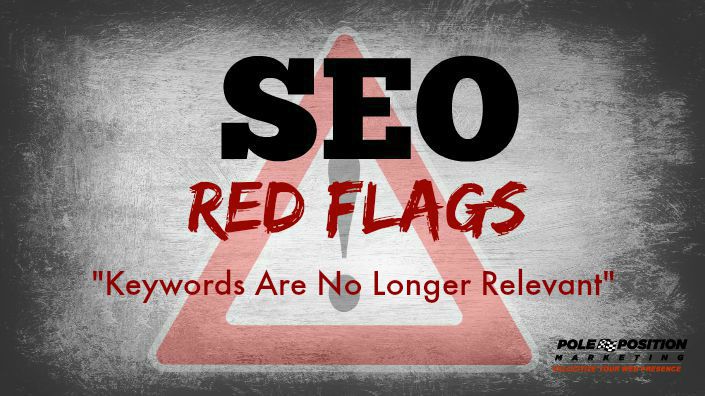Let’s call this the biggest web marketing lie since Google rolled out the Hummingbird algorithm in 2013! Google and other search engines are getting better and better at understanding human language and context clues. In fact, today, it’s entirely possible for a page to rank for a search without ever actually using the keyword. Rare, but possible.
Take for example a search for “pre-owned cars.” Only two of the top ten results does NOT have the word “pre-owned” in the title tag. Of those two, one of them has the word in the meta description and on the page. The other (a local result) has the word in (hidden) content.
Now do a search for “used cars.” Every one of the top ten results has “used” in the title tag. If there was ever a case where two phrases mean exactly the same thing in context, this would be it. You would think that the search results would be identical.
But they aren’t. So what does that tell us? That optimizing copy for keywords is still a relevant and important part of SEO. But it’s not about keyword density but rather keyword topics. [inlinetweet prefix=”” tweeter=”” suffix=””]Use keywords to create content that meets searcher’s needs. Don’t worry about repetition[/inlinetweet], but rather focus on what the searcher is looking for.
Unfortunately, the lie still persists. In fact, just today I read something along the lines that “SEO copywriting is dead.” It may have changed for a lot of SEOs who have been chasing algorithms rather than the audience, but it hasn’t changed for those of use who have been ahead of the curve all along.

